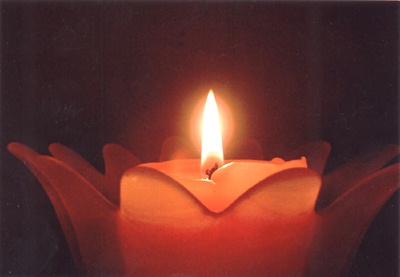All Nonfiction
- Bullying
- Books
- Academic
- Author Interviews
- Celebrity interviews
- College Articles
- College Essays
- Educator of the Year
- Heroes
- Interviews
- Memoir
- Personal Experience
- Sports
- Travel & Culture
All Opinions
- Bullying
- Current Events / Politics
- Discrimination
- Drugs / Alcohol / Smoking
- Entertainment / Celebrities
- Environment
- Love / Relationships
- Movies / Music / TV
- Pop Culture / Trends
- School / College
- Social Issues / Civics
- Spirituality / Religion
- Sports / Hobbies
All Hot Topics
- Bullying
- Community Service
- Environment
- Health
- Letters to the Editor
- Pride & Prejudice
- What Matters
- Back
Summer Guide
- Program Links
- Program Reviews
- Back
College Guide
- College Links
- College Reviews
- College Essays
- College Articles
- Back
Return to Kashmir MAG
My inner struggle for identity surfaced in the spring of my adolescence. I had always maintained a strong attachment to my culture – my mother made sure of that – but a new-found individualism began emerging, leading me to question beliefs and challenge traditions I had been raised with. I feared getting lost in this transformation. Would this formation of new beliefs make me forget my origins? My Pakistani roots, it seemed, might dissolve any day now, leaving me nationless.
One October morning, I awoke to the sounds of my family talking anxiously. As I walked into the living room, I noticed my mother worriedly dialing phone numbers as the others focused on the TV, totally absorbed. Images of children amidst rubble were overlaid with the narration of a newscaster. A magnitude 7.6 earthquake had just wreaked havoc in northern Pakistan.
Immediately, I called school friends and made plans to raise money for the victims. Going door to door with an emotionally arousing informational poster, I was received with open hearts. Neighbors, friends, acquaintances, and even strangers welcomed the chance to donate. After collecting an unimaginable $30,000, my father and I decided to travel to Kashmir to oversee its distribution.
So there we were: my father, a cultural identity crisis, and I, all waiting inside a tent in Muzaffarabad, Kashmir. The flap swept open, ushering in a bone-chilling breeze and three burly, bearded men. I lowered my gaze as they offered a plate of food. “Here you are, sister: macaroni, just how you Americans make it!” one said with droll smugness.
We laughed. I had never been to America, but to them it was all the same – I was an outsider. I was dressed just as the women roasting corn outside were. I was born on this very soil. Relying purely on physical appearance, no one would suspect my political and religious differences, or the not-so-homogeneous workings of my mind. No one would have known I was surprised that they had macaroni. Yet we all sat there, despite our differences, unified. The man called me “sister.”
Early the next morning, we traveled in a beat-up jeep to a girls' school in its final phase of reconstruction. While the school was being rebuilt, the children studied in a makeshift school nearby. The principal greeted us and explained that on that fateful day, school was in session when the earthquake hit, and the roof and walls had collapsed. Most of the children had died, and the survivors were trapped in the rubble for hours.
“May I film a student who experienced it?” I asked. “It will assure people back home of the good work being done here.”
The principal agreed. A teacher led me to an empty classroom and called in a girl of 15. I sat with a notepad and video camera, none of which I would need to remember her. She had been lucky, she explained; the day the earthquake hit she had been home mourning the death of her uncle. Most of her friends had died in the earthquake. Surprised at her poignant yet emotionally vacant answer, I pressed, “Do you miss them?”
“Of course,” she replied with a tinge of sadness, “but life goes on.” Accepting change was vital; she did not have the luxury of dwelling on the past. In our brief conversation, I saw characteristics in her that I yearn for. She did not fear her own evolution as a result of the dramatic changes around her. She accepted it as a part of her growth as a human being.
That afternoon, I felt dehydrated and emotionally drained. A Coke stand across the street shone like a beacon of something recognizable, something Western. I ambled toward salvation, ignoring the large pieces of concrete and rock I had to climb over. But in my oblivious ascent of this mound, I realized something: these were the remains of a house, a home, and in front of me lay something that resembled a window. I peeked through it, like Alice peering through the looking glass into another dimension – a void of darkness. There I made out the remains of a table, but what I really saw was a glimpse of myself, sitting there, having dinner with my family, arguing, laughing, crying. And at that moment I came to terms with myself by sublimating with a crisis much larger than me.
Strength, resilience, and pride, these were the traits my family had tried to instill in me. I had assumed that being Pakistani automatically meant being conservative and perhaps backward. Being progressive and liberal was alien. Did it have to be one or the other? Firmly reconciled with the past, I was ready to face the world. I completed my journey to the Coke stand and asked, “Bhai, aik Coke thai tho.” Please give me a Coke, brother.

Similar Articles
JOIN THE DISCUSSION
This article has 0 comments.
